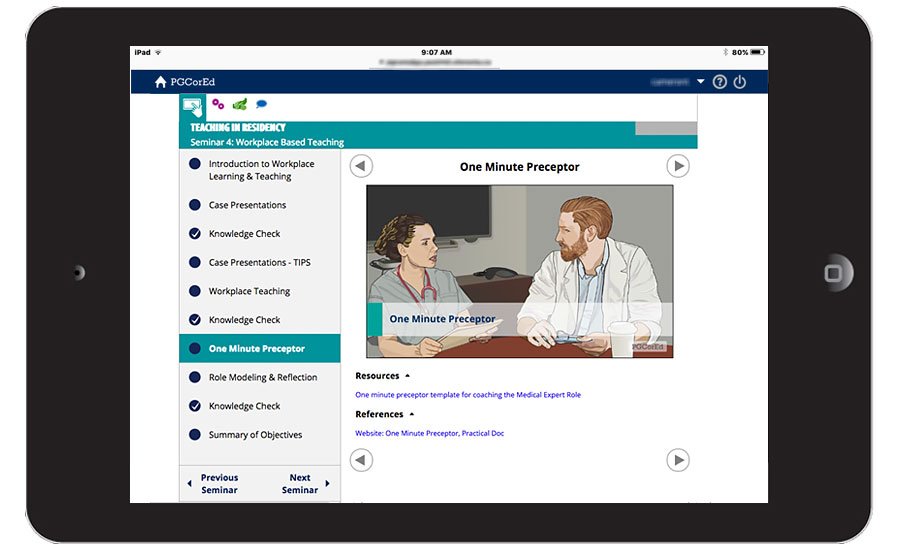Launching PGCorEd 2.0
Early in 2016, the Postgraduate Medical Education (PGME) Office launched the first two modules in the updated PGCorEd, online learning curriculum. Teaching in Residency and Collaborator are the first modules to be delivered in a new mobile-friendly platform.
PGCorEd is a series of online learning modules that all postgrad year 1 and year 2 residents complete as part of their residency training. Content experts help to develop each module ensuring that foundational knowledge relevant to the intrinsic CanMEDS roles: Communicator, Collaborator, Leader, Health Advocate, Scholar and Professional are covered. The modules are aimed to address the general content for these roles as it applies across disciplines. Residency programs can use this as a baseline and then build in specific teachings required for specialties.
This series of online learning modules was originally launched in 2008. Feedback received over the last few years from learners and program directors has given insight into how the modules can be modified to improve the learner experience. The new modules incorporate both revised content, in alignment with CanMEDS 2015, and feedback from users. PGME has developed a new content delivery platform that supports animations, an enhanced user interface, and built-in testing and reporting features. The new platform is designed to function in both desktop and mobile formats so that learners can access the modules from their phones, tablets, and computers.
As part of the learning design, the new modules incorporate in-unit questions and provide immediate feedback to learners so they can test their understanding of the content as they work their way through the modules. There will be 9 modules in the complete series, each one focusing on the CanMEDS 2015 competencies.
Overall the new modules Teaching in Residency and Collaborator have been well received by our learners and programs. End of Life Care and Communicator were launched in November 2016, and additional modules will be rolled out over the next 2 years.

